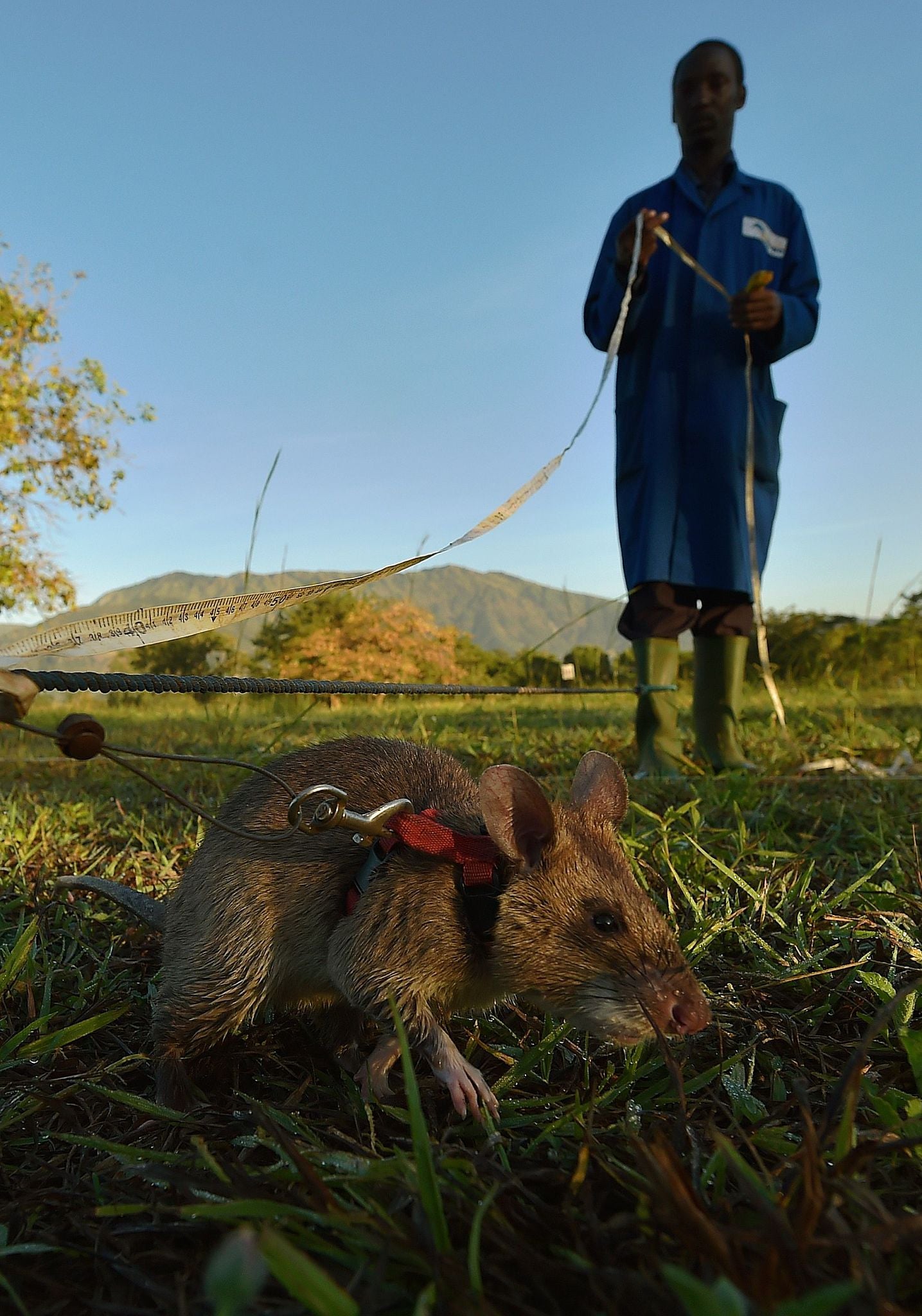Hero Bomb Sniffing Rat Has Passed
 CARL DE SOUZA. Getty Images.
CARL DE SOUZA. Getty Images.January 11 2022
A hero is laid to rest.
It is with a heavy heart that we share the sad news that HeroRAT Magawa passed away peacefully this weekend. Magawa was in good health and spent most of last week playing with his usual enthusiasm, but towards the weekend he started to slow down, napping more and showing less interest in food in his last days. Magawa had recently celebrated his birthday in November, reaching the grand old age of 8.
All of us at APOPO are feeling the loss of Magawa and we are grateful for the incredible work he’s done. During his career, Magawa found over 100 landmines and other explosives, making him APOPO’s most successful HeroRAT to date. His contribution allows communities in Cambodia to live, work, and play; without fear of losing life or limb. In September 2020, he was formally presented with a PDSA Gold Medal – the highest award for gallantry an animal can receive. Last year when Magawa retired, HeroRAT Ronin took up the baton as the new adoption rat.
Every discovery he made reduced the risk of injury or death for the people of Cambodia. Magawa is an African giant pouched rat (Cricetomys ansorgei) that was born in Tanzania at Sokoine University of Agriculture (SUA) in November 2013. Since 2000, APOPO has developed its operational headquarters, training and breeding center at SUA where all the landmine detection rats are born and trained. This is also home to APOPO’s Innovation department that researches and develops the innovative applications and advanced techniques used in existing operations. This is where he learned how to find explosives using his amazing sense of smell. Magawa moved to Siem Reap in Cambodia in 2016, where he began his career.
Over 60 million people living in 59 countries from Cambodia to Zimbabwe, do so in daily fear of landmines and other remnants of past conflict. Landmines are still inflicting pain and fear to a new generation of Cambodian people, a generation that wasn’t even born when these mines were laid. Clearing minefields is intense, difficult, dangerous work and demands accuracy and time. This is where APOPO’s animal detection systems can increase efficiency and cut costs.
It is thanks to all of you that Magawa will leave a lasting legacy in the lives that he saved as a landmine detection rat in Cambodia. Thank you all, from the bottom of our hearts, for your support during this difficult time.
RIP to a true hero. It's crazy to think but without Magawa the 2 foot long 3lb rat, hundreds of thousands of Cambodians could live their lives without fear of being blown up. Countless numbers of children didn't have to lose their legs after stepping on landmines that Magawa found. I have been looking into it and it is crazy what these trained rats can accomplish. Magawa received the animal equivalent of the U.S Medal of Valor and was the first non-canine to do so.
Mozambique's civil war in 1992 left the country with tons of unexploded landmines that have been a huge threat to anyone who needed to operate in that area. Detecting land mines is an extremely tricky situation because by the time a human can figure out where they are they have most likely exploded. Typical bomb-sniffing dogs were too big for such a task, less than 20 lbs are enough to explode a landmine. That's where the gigantic (but under the weight limit) rats come into play.
The rats are trained to sniff out TNT and are rewarded with bananas every time they find a mine. Not only are these rats able to sniff out bombs, but tuberculosis.
These rats have been deployed across the globe in areas that might have land mines like Cambodia.
The rats can also search the area way faster than humans. Since they are so light they do not need to move with the discretion of humans. These ain't your NYC subway rats or your french Ratatouille.
These rats may be able to provide many of the services of sniffing dogs such as search and rescue, cancer detection, or even drug-sniffing. Their small size and being more cost-effective for food and training may render sniffing dogs obsolete…


